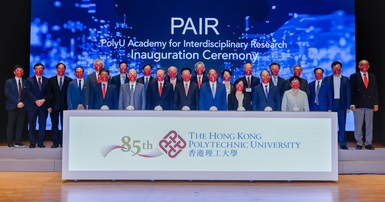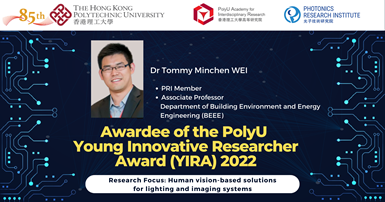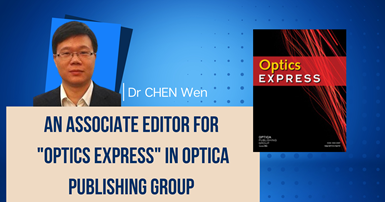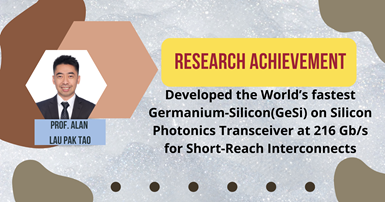
PolyU InnoTech Open Day and Inauguration Ceremony of PolyU Academy for Interdisciplinary Research (PAIR)
18 Jul, 2022

A PRI Member honoured with the PolyU Young Innovative Researcher Award (YIRA) 2022
9 Jun, 2022

Prof. Alan LAU Pak-tao co-edited a book “Machine Learning for future Optical Communications Systems”
17 May, 2022

Dr CHEN Wen has been invited to be an Associate Editor for "Optics Express" in OPTICA Publishing Group
28 Mar, 2022

Prof. Alan Pak Tao LAU in collaboration with the research team at CUHK developed the World’s fastest Germanium-Silicon(GeSi) on Silicon Photonics Transceiver at 216 Gb/s for Short-Reach Interconnects.
25 Mar, 2022

The research team led by Professor Tam Hwa-yaw developed the world’s first optical fibre-based data-driven predictive maintenance system
9 Mar, 2022

PRI researchers Dr Chai Yang and his research teams developed Retina-like sensors give machines better vision
8 Mar, 2022

PRI researchers Professor Tam Hwa-yaw and his research teams developed fibre-optic sensor for pioneering biomedical monitoring ability
8 Mar, 2022

PRI Members obtained The President’s Awards for Outstanding Achievement in Knowledge Transfer 2021 of PolyU
28 Feb, 2022

PRI and Department of EIE co-organized seminar: Searching compact binaries using space-based photometric observations
24 Feb, 2022


